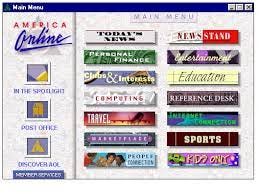Escaping the Walled Garden... again
Hey friends.
I hope you’re keeping up with your crypto homework in between your day job, kids, and personal hygiene.
I’m going to experiment with short frequent posts for the next little while.
I’ve spent the last four months 100% allocated to crypto projects (consulting + experiments) and am going to try to share more of what I’m seeing and hearing in real-time. Here are some of the topics I’m planning to cover:
The importance of non-USD stablecoins
Permissioned lending pools
Credit on the blockchain
Shoot me a reply if there is anything you want to learn about together.
Today, I want to react to piece John Street Capital recently published about fintech 3.0 (DeFi), and talk about why agency is the defining feature of DeFi.
In the mid to late nineties my family had a Gateway PC sitting on a giant banker’s desk in the front room / office of our suburban home. At that time, our version of the internet was AOL discs, a 56k modem, and seemingly endless pathways to get from one part of the walled garden to the next.
AOL introduced millions of people to the internet by providing a simple and safe way to adopt a new technology platform. It was a beautiful re-packaging of all of the communications technology before it.
For the better part of a decade many people assumed that media on the internet would manifest the same way it had for centuries. That we would continue to want a small number of trusted parties to create and curate content for us, and that any content outside of these trusted networks would be of low interest and likely low quality.
In reality, there is infinite demand for an infinite supply of content. Each day as new content is created it becomes a composable piece of whatever we want to create in the future. The increased supply makes it easier to compose higher quality new content for increasingly smaller niches.
Retail financial services today are much like AOL’s walled garden.
Last week, John Street Capital published compelling piece about fintech 3.0 as a complete replatforming of global financial infrastructure. The authors point to a number of examples where slow, opaque financial rails have resulted in massive inefficiency and near-catastrophic failure of one or more institutions. There is no doubt that the coming decades will see the largest financial asset markets and trading venues reshaped for transparency and efficiency.
Believe it or not incumbents want to see this change as much as anyone. Financial institutions already operate real-time ledgers on top of batch settlements. Bringing settlement into alignment with ledgers removes operational friction and therefore cost. Moreover, increased transparency will serve as a bargaining chip for further regulation.
All of this amounts to a further concentration of power, albeit with systemic risk growing linearly with the size of the global financial markets, instead of exponentially with the scale, opaqueness, and greed of the people writing the rules.
Fear not though. The next wave of innovation in money will be more broad and more people-centered than John Street Capital and others have described. Much like the early days of the web, “we’re on the cusp of something exhilarating and terrifying”.
DeFi (decentralized finance) describes a new financial ecosystem that is permissionless, programmable, and composable. A subset of these characteristics would represent a new way to deliver the existing system, but not a new system itself. Only a fully permissionless, programmable, and composable financial ecosystem will give us a new financial system to match our new coordination system (the internet). Anything less than this is the equivalent of AOL’s walled garden.
DeFi will give us agency over money in a way that we have never experienced in the modern world. Imagine going to any bank in the world, logging in with credentials from any other bank, and having access to your entire financial profile. Now replace our current notion of a bank with a program that facilitates the discovery and execution of money functions between any two parties. Also, everyone has equal access to that program and equal permission to build new programs on top of it. As a result, that program gets remixed into an infinite number of new programs to serve every conceivable money related interaction.
This is the promise of DeFi. If you want to feel it for yourself, create an Ethereum wallet with wallet provider like Metamask. Then take your seed phrase and import that wallet address into any other Ethereum wallet app (I like Rainbow). Take note of how it feels to possess this control over your own assets.
In the four years since the first DeFi protocol (MakerDAO’s collateralized debt position) was created, we now have hundreds of DeFi protocols representing ~$50B in value ($100B at it’s peak just a few months ago). Each protocol is a composable building block that will be used to create an ever increasing number of relevant financial products for ~5B global internet users.
For some, DeFi will represent lower costs. For others, basic market access. For all, a more emotionally satisfying way to interact with the world around us.

